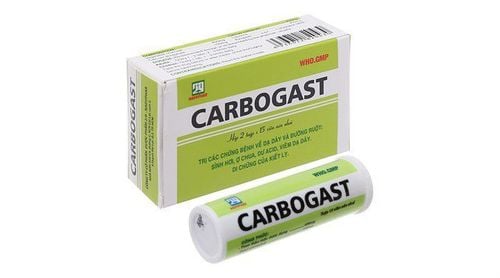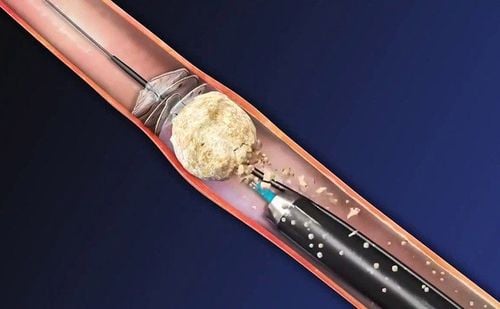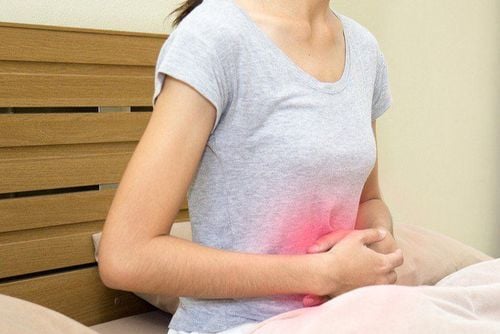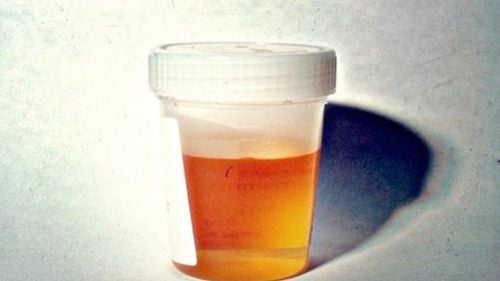This is an automatically translated article.
Renal colic is a severe pain that is common in surgical emergencies. If not detected and treated promptly, renal colic can cause many complications. So is kidney colic pain dangerous, let's find out through the article below.1. What is renal colic?
Renal colic (renal storm) is severe pain described as more painful than a fracture, childbirth, or surgery. 80% of renal colic is caused by stones. Stones form when minerals in the urine deposit and stick together to form hard crystals. Pebbles can be as small as a grain of sand or as large as a tennis ball. Stones can be anywhere in the urinary system (kidneys, ureters, bladder, urethra). Renal colic occurs when there is a blockage in the ureter, blocking the flow of urine, causing a sudden increase in pressure in the renal calyces, renal cortex, creating severe, cramping pain.2. Symptoms of renal colic
Symptoms of renal colic can vary depending on the size of the stone and the location of the stone in the urinary tract.Small stones cause only mild pain, can move out in the urine without causing much discomfort. Larger stones can get stuck in the ureter between the kidney and bladder, blocking the urinary tract causing severe pain. The pain comes on suddenly, naturally, often after strenuous work or vigorous exercise. The pain can last from 20 minutes to several hours. Pain originates from the lower back, the side with stones, spreads gradually to the lower ribs, down to the groin and external genitalia. Cramping pain, sudden, intense in each episode, no pain relief position. Possible accompanying symptoms: Dizziness, fatigue, nausea, vomiting, high fever, chills, metallic taste in the mouth, edema, difficulty breathing, painful urination, frequent urination, hematuria, urination cloudy, purulent urine, pain when urinating, urinary stones.
3. Causes of renal colic pain
When a stone is stuck in the ureter, blocking the flow of urine, the urine becomes stagnant in the kidney, causing the kidney cells to become waterlogged, causing distention, increasing the pressure in the renal calyces, the renal cortex cannot expand, causing a seizure. renal colic. Common causes of renal colic:Kidney stones : Stones are formed by the deposition of substances in the urine and are localized in the kidneys. After a sudden strong activity, the stone from the kidney falls into the ureter, stuck causing renal colic. Ureteral stone: Stone formed due to ureteral stricture, or congenital malformation in the ureter. Ureteral stones are often rough, hard, so when moving or friction causes hematuria, stones block the flow of urine causing renal colic Ureteral, bladder: Tumor causes narrowing, blocking urine flow causing pain Pelvic haemorrhage: Blood clots may form, which can block the ureter with urine flow, causing pain.
4. Risk factors for renal colic
Eating too much oxalate or too much protein. Personal or family history of urinary stones. Not drinking enough water. Fat . The body increases the absorption of calcium and stone-forming substances. Metabolic disorder, hyperparathyroidism. Urinary tract infection.5. Diagnosis of renal colic
Diagnosis of renal colic by clinical manifestations combined with subclinical.Basic blood tests: Complete blood count, blood biochemistry. Urine analysis. Conventional X-ray, computed tomography, abdominal ultrasound help locate stones in the urinary tract.
6. Differential diagnosis
Sometimes renal colic can be confused with other abdominal pain, delaying treatment. Note the distinction:Stomach - duodenal pain: Usually pain when hungry, with a history of stomach pain. Differentiate by esophagogastroduodenoscopy. Ectopic pregnancy: Pain with vaginal bleeding, missed period. Differentiate by beta HCG test. Appendicitis: Right iliac fossa pain, obvious signs of infection, no urinary abnormalities. Distinguish by ultrasound, CT scan. Neuralgia: Pain on both sides of the spine, muscle pain. Distinguish by ultrasound, CT scan, MRI scan. Gallstones: Pain with high fever, chills, jaundice, yellow eyes. Differentiate by test, ultrasound, CT
7. Is renal colic pain dangerous?
Many people wonder if kidney colic is dangerous? The answer is yes. Kidney colic if not diagnosed and treated promptly can cause many dangerous complications, possibly death. Some dangerous complications:Kidney damage: Dilatation, hydronephrosis, pyelonephritis, rupture of the calyx fundus, acute renal failure, chronic renal failure. Urinary tract infections. Ureteral dilatation. Dead. Even if the pain is gone, it doesn't mean it's gone. It is important to confirm whether there are stones or other causes of compression. In fact, about half of people have "silent stones" that do not cause pain, but are the most dangerous stones because they are often detected at a late stage, causing serious complications.
8. Treatment of renal colic pain
Treatment for renal colic depends on the type of stone. Some common types of stones:Calcium stones: Formed from calcium oxalate. Uric acid stones: Formed from urate crystals. Cystine stones: Formed by a disorder of cystinuria. Struvite stones: Formed by bacteria in the urinary tract. Most small stones will pass out on their own in the urine. It is possible to use medical treatment for stones that pass on their own. Includes:
Painkillers. Smooth muscle relaxants. Antibiotics. Corticosteroids. Selective antagonism of alpha-1 receptors. During medical treatment, it is necessary to drink enough water, practice jumping rope and control pain to help stones pass out faster.
If the stone is larger and cannot be removed on its own, an intervention method must be used. Some procedures help remove larger stones such as:
Extracorporeal lithotripsy. Percutaneous stone lithotripsy. Endoscopic retrograde lithotripsy. Place a ureteral stent. Open surgery. Renal colic causes many dangerous complications. It is advisable to detect and treat renal colic as soon as possible for your own safety. Contact your doctor immediately if you have questions about kidney colic.
Please dial HOTLINE for more information or register for an appointment HERE. Download MyVinmec app to make appointments faster and to manage your bookings easily.













